
(Photo by Jason LaVeris/Getty Images)
After close to two decades in front of the camera, most notably in the popular FX drama Sons of Anarchy, Taylor Sheridan turned his talents to writing and penned the script that would become Denis Villeneuve’s acclaimed thriller Sicario. A year later, he earned an Academy Award nomination for just his second screenplay, Hell or High Water, which also nabbed a Best Picture nod.
This week, Sheridan makes his feature directorial debut with another film he wrote called Wind River, which stars Elizabeth Olsen and Jeremy Renner as an FBI agent and a Fish and Wildlife official attempting to unravel a murder in rural Wyoming. Early reviews have Wind River pegged as another triumph for Sheridan, whose knack for gripping crime drama populated by complex characters is quickly becoming a trademark. Sheridan recently spoke to Rotten Tomatoes by phone to give us his Five Favorite Films, though he had trouble settling on a final choice. Read on for the full list.
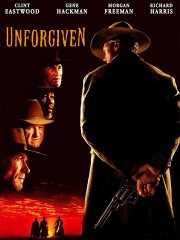
I would say Unforgiven is probably top of that list. What about it, is simply the way that Clint Eastwood demystified and destroyed our notion of a Western. I mean, demolished the genre; he turned it upside down. It was marvelous acting, and at times, his use of monologue and dialogue — that doesn’t ever take place in Westerns. He just took a baseball bat to the genre, and it was just incredibly profound to me. Wildly entertaining. He did things in the storytelling that hadn’t been done in the way that they were done. Incredible.
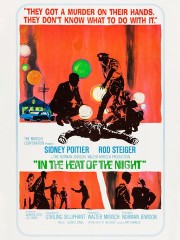
I think In The Heat Of The Night was one of the most influential films on me. Looking back now, I can see how influential it was on my screenwriting, because here you have what looks to be a crime procedural, and it’s actually a study in race and loneliness, and a perception of an era. So, I think that, that was one of the most influential films.
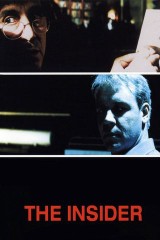
Micheal Mann’s The Insider was one of the most influential films on me. The way that he can build tension with a movie about a court deposition. Just incredible. To study it from a filmmaker’s standpoint, he does things in there, breaking rules, and usually if you’re going to employ a method of camera operation, you’re going to employ that throughout. But there’s one scene where he brings in a steady cam, and he does shots with that thing that are just incredible, and you don’t even recognize that’s what you’re watching, when it’s usually one of the most telling methods of operating a camera, and one I don’t personally like.
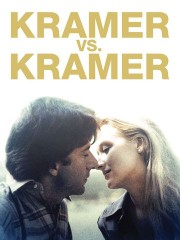
Kramer vs. Kramer is one of my favorite films, where you have a story that really juxtaposes a lot of ideas that we have about family, and about parenting. Again, an incredibly simple plot that allows for really rich exploration of character, and one of the best screenplays I’ve ever read.
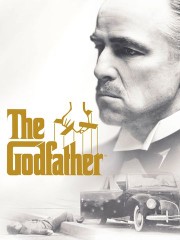
Then, I don’t know… Now I’ve got to start flipping coins. Should I say, The Godfather, or do I say Platoon, you know? Both incredibly influential films on me as well. The Godfather is such an interesting film in that it does a lot of things to establish character in place in a way that’s so economical. You don’t realize that you’re being given information; you don’t realize that you’re learning. It was one of the best-directed films of all time.
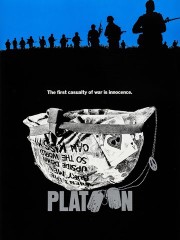
Platoon, I think I was 15 or 16 when I saw that movie in the theater. I was so riveted by it, and the experience around it. I remember when I saw that movie, this is when there was still lines to get in the next one. The movie hadn’t come out yet, and we’re all standing in a line, 400 people to go in, and when the door opened, it was all these Vietnam Vets in their gear, grown men, crying and holding hands and arms around each other. When I sat down, I had no idea what I was about to see. Again, it was a deconstruction of the war film, the antithesis of John Wayne’s The Green Berets.
Ryan Fujitani for Rotten Tomatoes: You’re an actor, a writer, and now a director. Did your experience both in front of and behind the camera help to shape your directorial style on Wind River?
Taylor Sheridan: I don’t think it helped influence my directorial style consciously, as far as, “How do I shoot it?” You’re going to build a cinematic style, there’s decisions you have to make as a filmmaker about, “How do I convey a mood with image?” Where having been an actor was extremely helpful to me, was in casting. That’s where I think a director who has acted can really shine, and casting is the most important thing you do.
I hired people, and a couple of them said, “I can’t believe you hired me. It was one of the worst auditions of my life.” I’m like, “Oh, I’m aware of that, I saw it, but I also saw what I needed to see.”
I can recognize a good actor. I can recognize someone that can convey emotion, and that has the essence, and not get lost in the minutia of, “Well that person’s got red hair and so does the other.” Some of the decisions in casting that seem so important at the time, until you get on set and you’re starting to shoot. I don’t think a lot of times directors who haven’t acted understand that.
RT: Speaking of which, a lot of people are calling this your directorial debut, but I’m seeing that you’re actually credited as a director on what appears to be a horror film called Vile, back in 2011.
Sheridan: [laughs] Yeah. I would say this is my feature debut. A friend of mine raised — I don’t know what he raised — 20 grand or something, and cast his buddies, and wrote this bad horror movie, that I told him not to direct. He was going to direct it and produce it, and he started and freaked out, and called and said, “Can you help me?” I said, “Yeah, I’ll try.”
I kind of kept the ship pointed straight, and they went off and edited, and did what they did. I think it’s generous to call me the director. I think he was try to say thank you, in some way. It was an excellent opportunity to point a camera and learn some lessons that actually benefited me on Wind River.
RT: You’ve written a couple of great films already. Was there a reason why, when you wrote Wind River, you thought, “Okay, I’m going to do this one?” Or was it just a matter of circumstances coming together just right?
Sheridan: This subject matter, I couldn’t trust that someone else would have the same vision for it that I would. I had made promises to people in the native community, that this would be done a certain way, and the only way to guarantee that it was done that way was to direct it myself. I had to go, “Okay, look, even if it’s not good, at least it’s the way I promised I would do it.”
Hopefully, people think it’s good. That’s always the goal, because the aspirations for a bad movie don’t matter, because no one sees that.
Wind River opens in limited release this Friday, August 4.